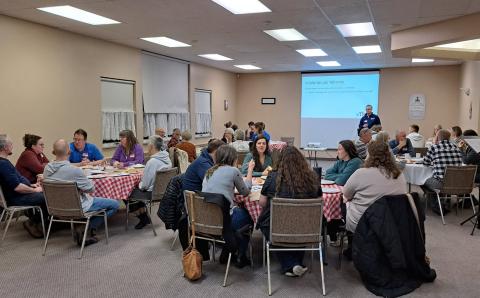How should I treat a brother or sister who leaves the church to avoid discipline?
I hear it all the time: How can a church discipline its members for unrepented sin if they can simply leave the church and go somewhere else? Few people, it seems, take the church’s authority very seriously anymore. That is just as true at the local level (consistory) as it is at the regional or denominational levels (classis or synod).
The purpose of church discipline is to restore to Christ those who are sinning. Paul writes in Galatians 6:1, “If someone is caught in a sin, you who live by the Spirit should restore that person gently.” However, as Paul recognizes in 1 Corinthians 5, people do not always respond well to correction, no matter how loving or pastoral it is. “If they refuse to listen even to the church,” Jesus says in Matthew 18:17, “treat them as you would a pagan or a tax collector.”
Jesus’ point is not that we should treat such people badly, let alone ostracize them. After all, Jesus was known for his love and generosity toward pagans and tax collectors. He even shared meals with them! His point, rather, is that we should be all the more devoted to such people: “If a man owns a hundred sheep, and one of them wanders away, will he not leave the ninety-nine on the hills and go to look for the one that wandered off?” (Matt. 18:12). When Peter asks how many times he should forgive someone, Jesus declares that he should forgive not seven times, but seventy times seven (Matt. 18:22).
Our hearts should break for those who abandon fellowship with us. Rather than resign ourselves to the lie that their departure is a good thing that will make our lives easier, we should do everything in our power to restore them, starting with prayer but extending to ongoing conversation, shared meals, and friendship. Jesus’ very purpose in becoming flesh was to pursue us in love and restore us to the Father. We are called to do the same for our brothers and sisters.
About the Author
Matthew J. Tuininga is professor of Christian ethics and the history of Christianity at Calvin Theological Seminary. He lives in Wyoming, Mich.









